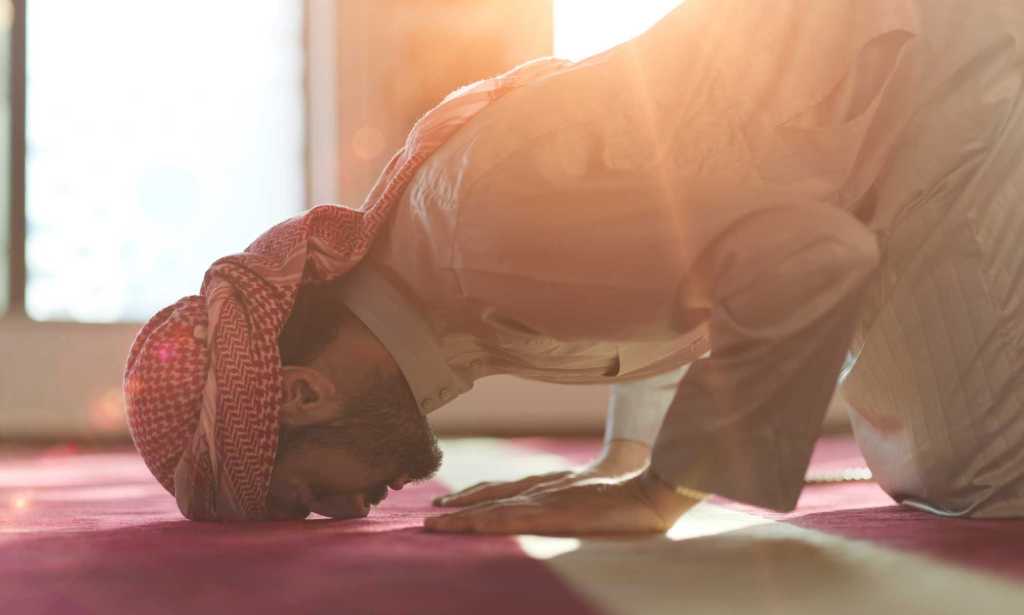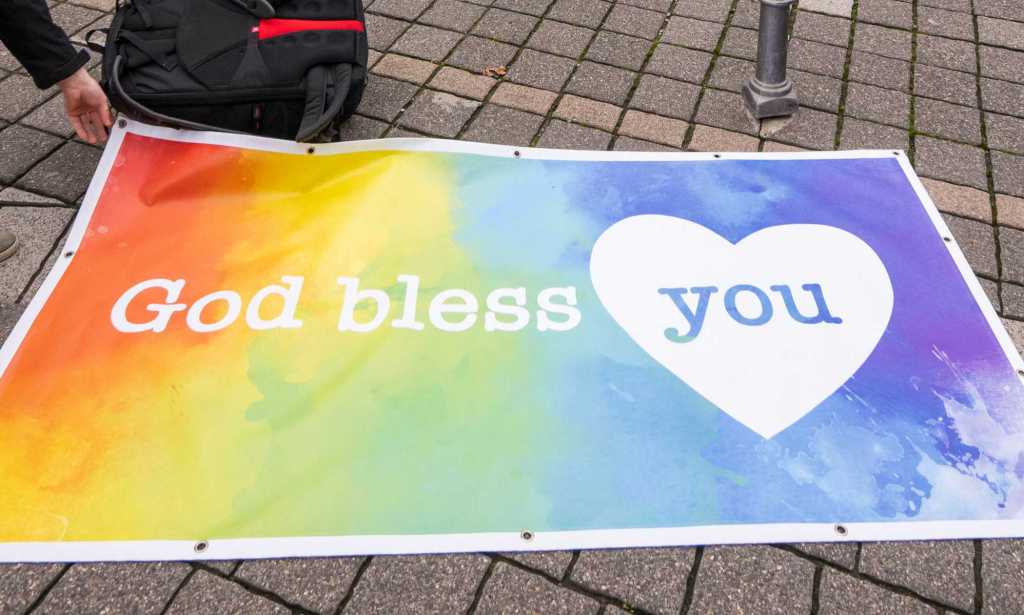UK belief in God among lowest in world, according to science
Author: Sophie Perry
New research has revealed Brits are now among the least likely internationally to believe in God, following a growing decline in faith since the 1980s.
The research, led by the Policy Institute at King’s College London, was carried out as part of the World Values Survey (WVS) – one of the largest and most widely used academic social surveys in the world – which has been in operation since 1981.
In 1981, 75 per cent of Britons said they believed in God but that figure has dropped to below half (49 per cent) in 2022.
Nick Baldwin, LGBT Humanists coordinator, told PinkNews the findings underline what Humanists “already know”: “The UK population is largely non-religious and getting increasingly more so.”
He said: “This is at odds with our state set-up which is overly religious in nature, from faith-based discrimination in schools to having bishops in the House of Lords.
“Our politicians need to wake up to the facts: we live in a diverse and plural society. We should strive to build a country that treats everyone equally regardless of religion or belief.”
In a similar vein, other statistics in the research show just 32 per cent of British people now describe themselves as a ‘religious person’, down from 57 per cent in 1981.
During the same period, the number of people describing themselves as atheists – those who do not believe in God or religion – has increased five-fold from four per cent to 21 per cent.

President of Atheism UK, John Richards, said the growing trend of religious-indifference is “very pleasing” and is perhaps due to “education and the rise of science, which has proved to be a much more successful source of information”.
Richards told PinkNews: “It’s a trend that is not just restricted to the UK. Pretty much anywhere that has access to modern communication is showing the same loss of faith.
“This is a good thing, that we are growing up as a species, we are coming out of the need to believe in comforting explanations which are not true and being more discriminating about what we take as our reliable sources of information.”
The research also found the share of the population who say God is not important in their life is at a record high, having doubled compared with four decades ago.
Over the same period, members of the public believing in heaven fell from 57 per cent to 41 per cent.
However, despite the fall, the notion of heaven remains a more popular concept than hell, which 26 per cent said they believe in and is a figure relatively unchanged since records began.
Belief in life after death, rather than specifically heaven or hell, has remained consistent between 1981 and 2022, with just under half of Brits surveyed believing there is ‘something’ after they die.
Sarah Jones, a trans Anglican priest based in Cardiff, said these results were “interesting” due to the fact belief in God has dropped significantly but the idea of life after death has not.
In her view, she thinks many adults hold onto the idea of God that they were taught in primary school, which does not fit them as an adult, meaning they are unable to understand or willing to experience what religious communities can offer adults.
Despite the fact they still believe in something, they could be unwilling to label it ‘God’.
She told PinkNews. “They think: ‘Gosh, I don’t believe that God looks after me’ and ‘if God is so good, why do bad things happen?’
“They have a kind of understanding of God when they were very young, and not surprisingly they say ‘Gosh, this doesn’t fit me as a 20, 30, 40, 50 year old’, “This is not something I can believe in.’”
In Jones’ view, a “good religion done well, is a lot more interesting than people think” which can offer positives rather than being a “burden” on people’s lives.

An interesting find in the study was that belief in God has declined among the Pre-War generation and Baby Boomers, bucking the notion people become more religious as they age.
In 1981, the figures showed 82 per cent of the Pre-War generation in Britain said they believed in God – but this is now down to 59 per cent.
Baby Boomers have followed a similar trend, with 2022 marking the first time less than half (48 per cent) said they believed in God.
On the other hand, Gen Z – as might be expected – have the lowest belief levels at just 37 per cent.
Gay Christian, former government equalities advisor and conversion therapy survivor Jayne Ozanne said this trend of belief dropping in older generations is a “fascinating” element of the research.
She said: “To me it shows how we have failed to spread God’s message of unconditional love to all, most likely because religion is seen as hypocritical and judgemental of particular parts of our society – most notably the LGBTQ+ community.
“The fact that the UK is so far down the international rankings, even below Russia, when it comes to belief in God should be a massive wake up call to our established church – indeed, one has to ask whether their influence in our country’s law making can really be justified when so few in the UK have faith today?”
LGBTQ+ people less likely to believe in God
In April, newly released Census data showed the majority of gay, lesbian, bisexual and trans people in England and Wales do not describe themselves as belonging to a religion.
The data was published as part of a release which combines sexual orientation and gender identity statistics with variables collected in the 2021 census.
The breakdown of religious identity by sexuality and gender is a first of its kind by the Office for National Statistics (ONS).
The research revealed 63 per cent of LGB people and 36 per cent of trans people have “no religion”.
Meanwhile, the overall census results for England and Wales showed 37 per cent of the total population are not religious.
LGBTQ+ people are, therefore, more likely than the general populous to say they do not have a religion.
At the time, Ozanne said the Census data is no surprise given how “most religions judge, condemn and ostracise” the community.
“It is a fact that many LGBT+ people leave their faith communities because of the way they are treated by them,” she said.

This view was echoed by Jones when discussing this past data in reference to King’s College London’s new research.
The Cardiff-based priest said it is “undeniable” that anti-LGBTQ+ religions have inevitably driven queer people away from faith.
As a community, LGBTQ+ people have, in her opinion, done the “healthy” thing and separated themselves from institutions which seek to harm and ostracise them.
However, she does feel the tide is turning: “What is good is that a lot of the major world faiths, there are increasing numbers of people who are welcoming and positive about the whole sort of LGBTQIA+ spectrum.
“My own experience is that since I run a church which is really welcoming to people regardless of gender, sexuality or identity, people actually are so relieved to find a church like that, that they really do engage.”
She added: “We hope those of us who are more positive can attract back people because strangely enough a lot of queer people are very spiritual, and they really want to connect with their idea of God.
“People who work in other faiths have told me this as well, that there’s a deep spiritual awareness amongst queer members of their own faith.
“In a sense, they’re longing for it to be watered.”
Actual Story on Pink News
Author: Sophie Perry





